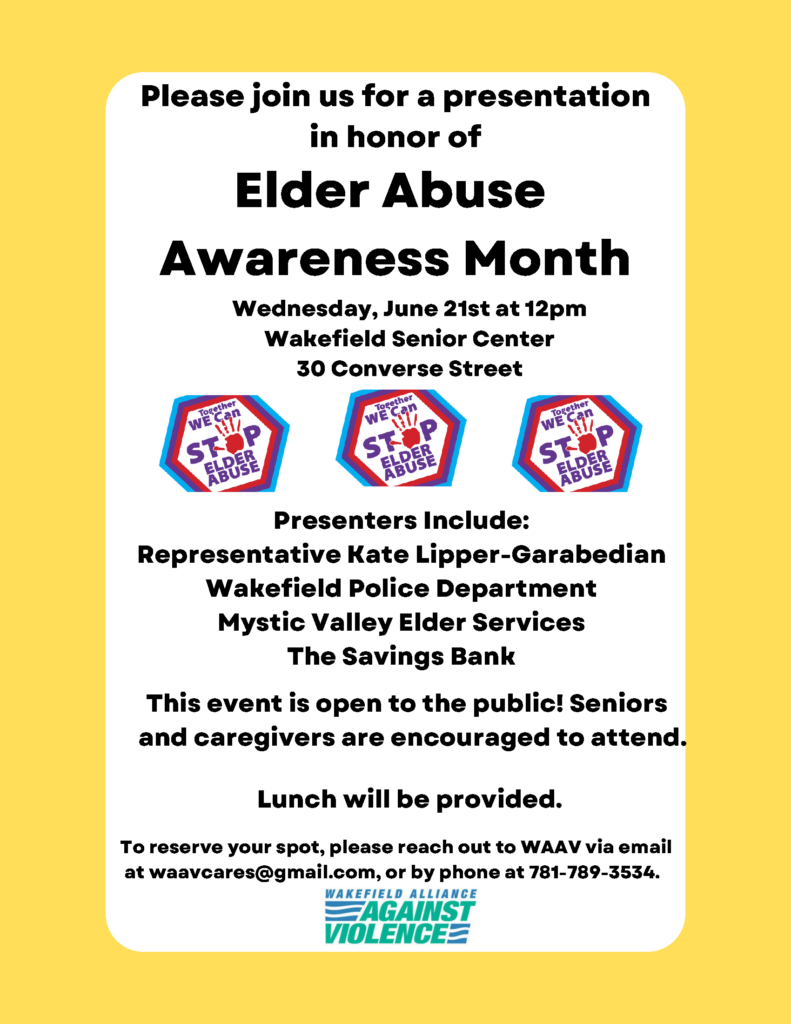
June 15 is World Elder Abuse Awareness Day, an observance that is truly necessary. Elder abuse, unfortunately, is too often overlooked or dismissed.
One in 10 Americans aged 60 and over have experienced some form of elder abuse – a troubling statistic, especially since experts believe many elder abuse cases go unreported. At Mystic Valley Elder Services, we investigate and resolve about a thousand cases every year. (Please join us at Wakefield Alliance Against Violence-WAAV’s June 21 presentation on this topic, where our team will be part of the discussion.)
The most important thing we can do to stop elder abuse is, of course, to look for the signs and report abuse when you see it. Almost as important, we need to make elder abuse part of our society’s ongoing dialogue about abuse prevention. Assault, neglect and exploitation shouldn’t live in the shadows just because the victims are older.
Finally, it’s helpful for all of us to recognize the circumstances that make it difficult for older adults to report abuse. Just a few examples:
- Limited or fixed income may make abuse survivors afraid to fall into poverty or homelessness if they report a family member or partner.
- Generational norms cause some survivors to guard their private lives or feel ashamed to come forward about abuse, feeling they’d be “airing dirty laundry.”
- Health conditions may contribute to an abuser’s behavior, or make the survivor feel guilty about sharing the problem.
- Survivors may be dependent on their abuser for day-to-day help, especially if the victim is dealing with physical limitations, illness or injury. This leaves the survivor uncertain of how they’ll cope if they report the abuse.
Please check out the resources linked in this article. Understanding the problem of abuse and facing it head-on is the best way to address it and work toward a solution.
